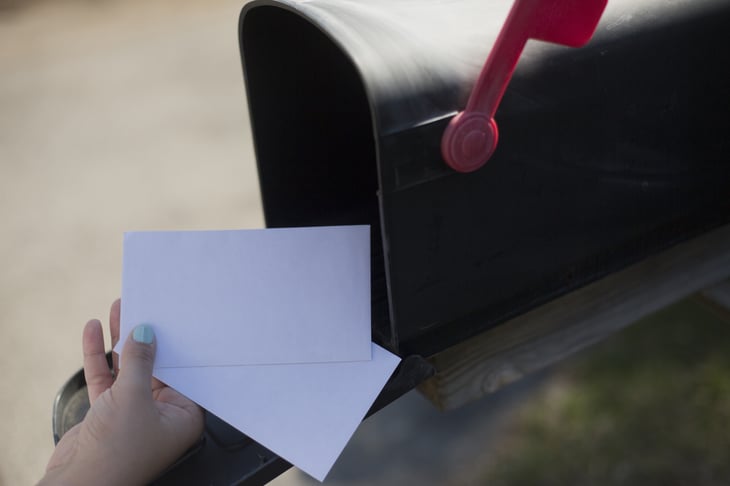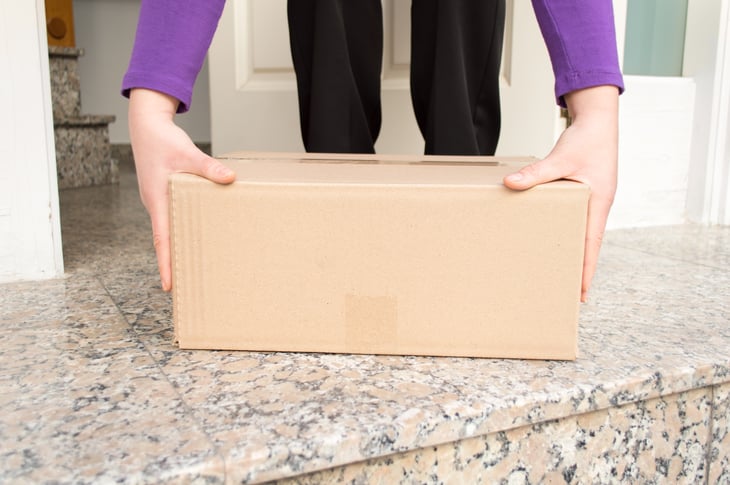
Financial planning and budgeting can be tough. So, let’s keep it simple.
Here are a bunch of quick and easy tricks to help you save money — on videos, groceries, gas for your car and more. Keeping it simple can be one of the most practical paths to saving.
1. Use an app to stop impulse buys

If your shopping habits feel out of control, get your phone on your side by installing an app like Opal. (There is also a version for the Chrome internet browser, if you shop on a computer.
Opal is designed to block apps that eat up too much of your money — or time — during certain times that you can customize. About 22% of users use Opal to block shopping apps like the Amazon app, according to The Wall Street Journal. So if you know a certain boring time of day lends itself to virtual window shopping, put a stop to it.
The basic version of the app is free, although there are paid options for finer control or professional coaching to manage your habits.
2. Fill reusable bottles with tap water

What are we doing, buying fancy water when it’s available for free out of our home taps?
Avoid that fancy French water in wasteful plastic bottles. Just pick up a solid, refillable water bottle and fill it with fresh, cold water before you head to the gym or out on a walk.
We’ve got more to say about bottled water, in “41 Things You Should Never Buy.”
3. Check out the library for movies and more

We all know that libraries lend books for free. But you might be surprised by the other things available to borrow from your local branch. Depending on the library, it’s possible to borrow movies, CDs and e-books.
Some libraries even offer things you may not know of: paintings, cake pans, tools and online language lessons, for example. All free.
As your librarian might say, “Check it out.”
4. Learn your ATM’s ABCs

Read the ATM rules at your bank or credit union to help avoid fees. ATM and other bank fees drain your finances.
Some financial institutions have deals with other businesses. For example, I once banked at a credit union that allowed free use of ATMs at all 7-Eleven stores.
Some financial institutions waive ATM fees if you maintain a minimum balance or make a minimum number of transactions in a specific time frame. You’ll find ATM rules at your bank’s website. Or, just call and ask.
5. Keep an eagle eye on automated payments

Setting up an automated payment can be handy for recurring payments — to your gym, for instance, or to online services for streaming entertainment or for charitable donations.
As the months go by, though, it’s easy to forget about the payment while money is being regularly sucked out of your account. Take a few minutes to log in to all each of your financial accounts — including PayPal — to track down and cancel recurring deductions you no longer want.
Even easier, use Rocket Money, a Money Talks News partner, to easily find and cancel payments with little effort.
6. Use reward points to save on gas

Pump up the savings! Many grocery stores partner with gas-station chains in programs that let shoppers accumulate points for gas when buying groceries. Punch in your phone number or scan your membership card at a participating gas station to save some serious money per gallon, depending on the points you’ve piled up.
If gas is a major expense for you, consider getting a credit card that earns extra reward points at gas stations. Money Talks News’ Solutions Center makes it easy to comparison shop for gas rewards cards.
7. Plant a garden

Grandma and Grandpa knew best: When it comes to fruits, vegetables and herbs, nothing tastes as good as homegrown.
Think about what you love best at the local farmers market, and assess whether it’s reasonable to grow those treats at home. Plant nurseries, county extension offices and libraries often have classes and lectures on how to get started.
Live in an apartment with no garden space? Those same experts often can tell you how to lease space in a community garden.
8. Stick to your grocery list

Mmm, that cake sure looks good! Hey, is that a new breakfast cereal?
Don’t go grocery shopping without a list. (And eat something before you go, so hunger doesn’t drive your decisions.)
If you have a list — on paper or on your smartphone — you’ll be more focused. You’ll be less likely to suddenly realize you’ve spent your whole budget and forgotten to get milk.
Check out: “The 27 Absolute Best Ways to Save on Food.”
9. Sign up for grocery coupon programs

Grocery stores typically offer electronic coupons through their loyalty programs. These can be great ways to save on grocery costs.
If you shop at the same chains often, signing up may be worth the effort. Often, the only membership identification you’ll need is your phone number. Look for more savings by logging into the program’s website or app before shopping.
10. Be a coffee achiever

Realistically, the occasional latte isn’t going to break your budget. But there are ways to trim your coffee costs.
If java joints are your soft spot, consider joining their rewards plans or pick up one of the shop’s punch cards.
11. Stock up on Forever stamps

When the U.S. Postal Service first issued Forever stamps in 2007, each stamp cost 41 cents. In 2023, they’re 63 cents.
But you can still use those 41-cent ones today, saving 22 cents off the current cost. Every little bit helps, and this tip pays off especially when you’re sending holiday cards.
12. Compare costs for paying annually versus monthly

People and businesses like to be paid in advance. By paying your balance due upfront — on insurance premiums, for example — you often can save.
So, compare costs before opting for monthly payments.
13. Join a local giveaway group

If you’re a Facebook user, perform a search for the name of your neighborhood. You’re likely to find a barter or giveaway group, in which neighbors offer each other used items.
Rules vary. Buy Nothing groups require everything to be offered free. Freecycle groups, as the name implies, also enable users to give and get stuff for free. Other groups allow trading or bartering.
If you’ve got a hobby — from tending fish to collecting Pyrex — seek out Facebook fans who share your passion. They often know where to find the best deals, coupons and trades.






Add a Comment
Our Policy: We welcome relevant and respectful comments in order to foster healthy and informative discussions. All other comments may be removed. Comments with links are automatically held for moderation.